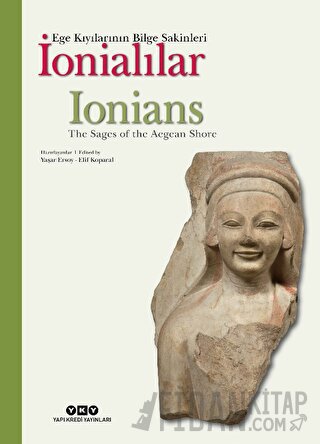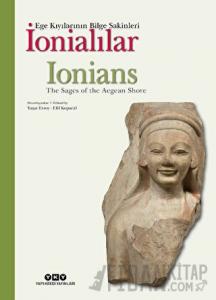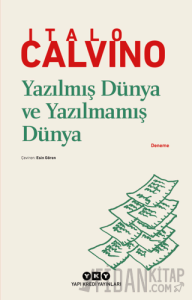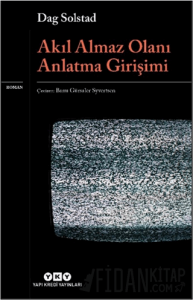
Ege’nin Anadolu kıyılarında yaşayan İonialılar kuzeyde Phokaia’dan güneyde Miletos’a kadar uzanan bölgede ve hemen karşısındaki Samos ve Khios adalarında 12 kent kurmuşlardı. Bugün artık böyle söylemekten imtina etsek de İonialıların uzun zaman literatürde neden “Doğu Yunanlar” olarak adlandırıldıklarını açıklamak mümkün. Öncelikle İonia antik Yunan kültürel coğrafyasının çekirdeğinde değil de çeperinde sayılmasına karşın bugün Klasik Yunan uygarlığı olarak tanımladığımız kültürü şekillendiren pek çok önemli tarihi olay bu bölgede gerçekleşmiş, çok sayıda önemli tarihi kişilik bu topraklarda doğup yaşamıştır. Batı felsefesinin Arkaik temelini oluşturan doğa felsefesi İonialıların yaşadıkları çevreyi nasıl algıladıklarını ve gözlemlediklerini bize gösterir. Miletoslu Thales ve Anaksimandros, Ephesoslu Herakleitos, Klazomenailı Anaksagoras, Kolophonlu Ksenophanes İonia felsefe okulunun öncüleridir. Yine Batı edebiyatının temel taşı sayılan İlyada ve Odysseia’nın ozanı Homeros Smyrna’da veya Khios’ta doğmuş ve yaşamıştır. Yasalar karşısında eşitlik yani isonomia ilkesine dayalı olduğu iddia edilen kent planlamacılığına adını veren Hippodamos da Miletosludur.
Batı Anadolu sahilindeki bu küçük bölgenin Batı uygarlığının temel taşı sayılan antik Yunan kültürü üzerindeki yadsınamaz etkisi İonia ve İonialılar hakkında düşünmeyi her daim değerli kılmaktadır.
The Ionians lived on the Aegean coast of Anatolia where they founded 12 cities along the shoreline extending from Phocaea in the north to Miletus in the south, and on the offshore islands of Samos and Chios. Although we refrain from calling them this today, it is understandable why the Ionians for a very long time were named “Eastern Greeks” in the literature. Ionia was considered peripheral to the core of the ancient Greek cultural geography. Still, many important historical events that shaped the culture and society we label as the Classical Greek civilization transpired in this region, and countless key figures were born and lived in the Land of Ionia. Natural philosophy, which forms the archaic foundations of Western philosophy, shows us how the Ionians perceived and observed the environment in which they lived. Thales and Anaximander of Miletus, Heraclitus of Ephesus, Anaxagoras of Clazomenae, and Xenophanes of Colophon were the pioneers of the Ionian school of philosophy. Also, Homer, the poet of the Iliad and the Odyssey, considered as the cornerstone of Western literature, was born and lived in Smyrna or Chios. Hippodamus, the namesake of the urban planning template, arguably based on the principle of equality before the law, isonomia, was also from Miletus.
The undeniable influence of this small region located on the western Anatolian coast on the ancient Greek culture, which is considered the cornerstone of Western civilization, always makes it worth pondering about Ionia and the Ionians.
Ege’nin Anadolu kıyılarında yaşayan İonialılar kuzeyde Phokaia’dan güneyde Miletos’a kadar uzanan bölgede ve hemen karşısındaki Samos ve Khios adalarında 12 kent kurmuşlardı. Bugün artık böyle söylemekten imtina etsek de İonialıların uzun zaman literatürde neden “Doğu Yunanlar” olarak adlandırıldıklarını açıklamak mümkün. Öncelikle İonia antik Yunan kültürel coğrafyasının çekirdeğinde değil de çeperinde sayılmasına karşın bugün Klasik Yunan uygarlığı olarak tanımladığımız kültürü şekillendiren pek çok önemli tarihi olay bu bölgede gerçekleşmiş, çok sayıda önemli tarihi kişilik bu topraklarda doğup yaşamıştır. Batı felsefesinin Arkaik temelini oluşturan doğa felsefesi İonialıların yaşadıkları çevreyi nasıl algıladıklarını ve gözlemlediklerini bize gösterir. Miletoslu Thales ve Anaksimandros, Ephesoslu Herakleitos, Klazomenailı Anaksagoras, Kolophonlu Ksenophanes İonia felsefe okulunun öncüleridir. Yine Batı edebiyatının temel taşı sayılan İlyada ve Odysseia’nın ozanı Homeros Smyrna’da veya Khios’ta doğmuş ve yaşamıştır. Yasalar karşısında eşitlik yani isonomia ilkesine dayalı olduğu iddia edilen kent planlamacılığına adını veren Hippodamos da Miletosludur.
Batı Anadolu sahilindeki bu küçük bölgenin Batı uygarlığının temel taşı sayılan antik Yunan kültürü üzerindeki yadsınamaz etkisi İonia ve İonialılar hakkında düşünmeyi her daim değerli kılmaktadır.
The Ionians lived on the Aegean coast of Anatolia where they founded 12 cities along the shoreline extending from Phocaea in the north to Miletus in the south, and on the offshore islands of Samos and Chios. Although we refrain from calling them this today, it is understandable why the Ionians for a very long time were named “Eastern Greeks” in the literature. Ionia was considered peripheral to the core of the ancient Greek cultural geography. Still, many important historical events that shaped the culture and society we label as the Classical Greek civilization transpired in this region, and countless key figures were born and lived in the Land of Ionia. Natural philosophy, which forms the archaic foundations of Western philosophy, shows us how the Ionians perceived and observed the environment in which they lived. Thales and Anaximander of Miletus, Heraclitus of Ephesus, Anaxagoras of Clazomenae, and Xenophanes of Colophon were the pioneers of the Ionian school of philosophy. Also, Homer, the poet of the Iliad and the Odyssey, considered as the cornerstone of Western literature, was born and lived in Smyrna or Chios. Hippodamus, the namesake of the urban planning template, arguably based on the principle of equality before the law, isonomia, was also from Miletus.
The undeniable influence of this small region located on the western Anatolian coast on the ancient Greek culture, which is considered the cornerstone of Western civilization, always makes it worth pondering about Ionia and the Ionians.











